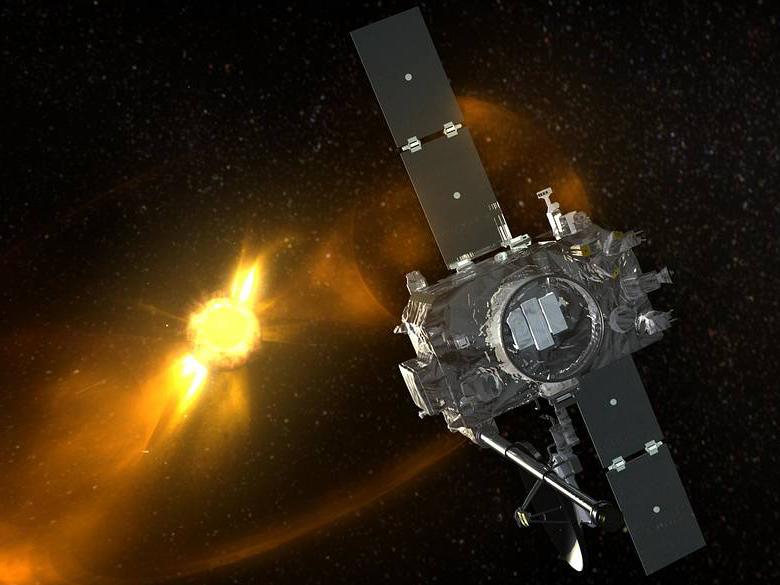Weather forecasts from distant space would help keep Earth safe from catastrophic solar winds, study finds
Data from spacecraft millions of miles away could help improve predictions of devastating events like coronal mass ejections

Information from spacecraft travelling in the depths of space could help scientists predict dangerous space weather that threatens astronauts, satellites and power systems on Earth.
Scientists at the University of Reading found that data gathered by Nasa’s two STEREO spacecraft, which are currently orbiting the Sun, can improve solar wind forecasts by around 20 per cent.
Such improvements could be vital for protecting us from solar events such as coronal mass ejections in which hot, magnetic material erupts from the sun, potentially jeopardising human power supplies.
Using craft drifting in space to collect this information is comparable to the way in which weather forecasts are made on Earth – where data is gathered from multiple locations to improve accuracy.
“Currently, space weather forecasts don’t make use of the available spacecraft measurements of the solar wind, which contain valuable information, even when far from Earth,” explained Professor Mathew Owens, a space physicist at the University of Reading,
“We believe this is the first time this method has been applied to solar wind forecasts, using observations taken by spacecraft many millions of miles away.”
In their paper, published in the journal Space Weather, the scientists used solar wind data collected by the STEREO craft.
They now want to build on this work using data collected from other Nasa and European Space Agency devices on missions to Mercury, Venus and Mars.
This, they hope, would enable them to monitor space weather with greater accuracy.
“Our research showed this method improved forecasts by at least 20 per cent in near Earth-space, but we expect that this improvement will be even more significant when used on more advanced models,” said Professor Matthew Lang, a meteorologist at the University of Reading who co-authored the study.
“This method can also be used to incorporate data from the Parker Probe and Solar Orbiter missions into models, enabling us to further understand the physical processes driving the solar wind towards Earth.”
Coronal mass ejections are classified as “low probability but high-impact events”, and experts have warned that the Earth should do more to prepare for them.
Space weather has only caused minor effects on Earth in recent years, with the last major event taking place in the mid-19th century. If such an event took place today it would likely disrupt much of the planet’s communication technology.
Join our commenting forum
Join thought-provoking conversations, follow other Independent readers and see their replies
Comments
Bookmark popover
Removed from bookmarks